Dear reader,
In this edition, we explore how Strasbourg’s Nextmed campus is shaping the future of healthcare in France, while Railpen welcomes Emma Goodford following her 37-year tenure at Knight Frank UK. In Athens, ancient healing traditions influence the design of modern medical facilities, and across Europe, science parks are highlighting their green and leafy settings to attract tenants.
✅ Nextmed Strasbourg: powerhouse of healthcare innovation
✅ Industry voice: Emma Goodford
🔒 Asclepius: healing skills inspire Athens LifeTech Park
🔒 Lakes, lawns and leafy avenues: marketing out-of-town locations
(🔒 items are for paying members only)
Our signature deal tracker returns on 29 May.
— Stephen Ryan (connect with me on LinkedIn)
📌 1,091 transactions tracked across Europe
📌 24 countries
📌 €60 billion in total investment value
📌 24 million sq m of real estate
It's also easy to sort, filter and search through it. Access the data
Nextmed: Strasbourg's healthcare innovation campus
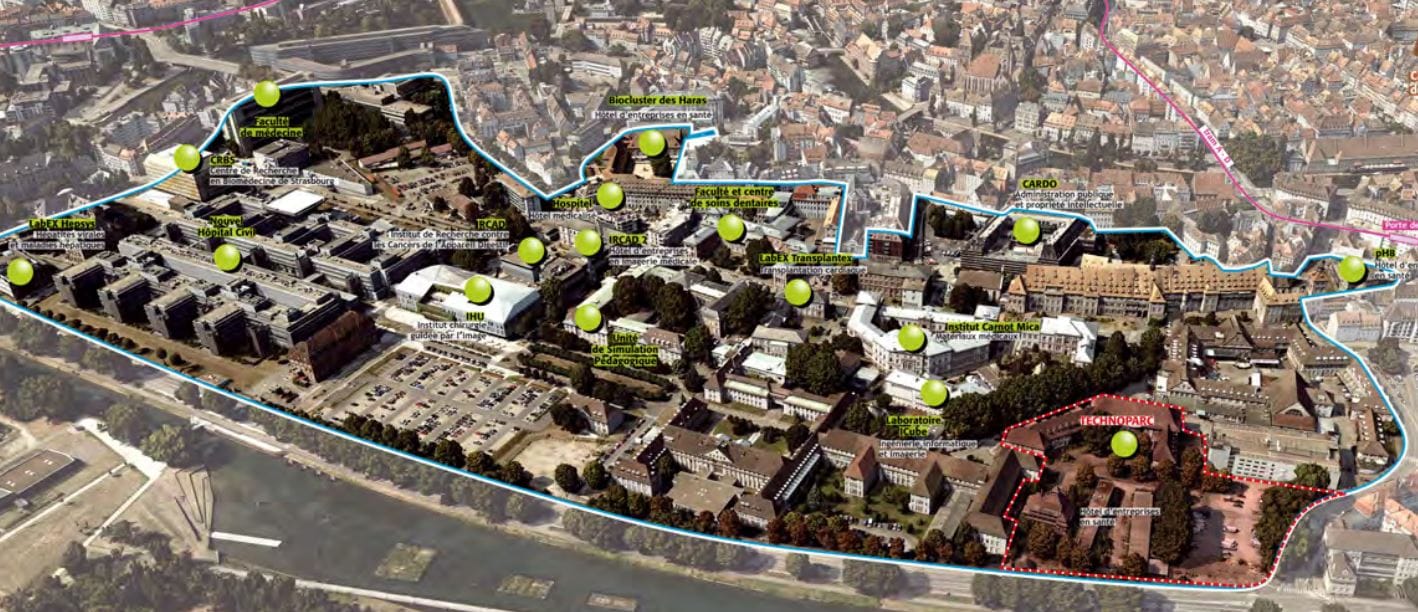
Nestled within the historic Strasbourg Civil Hospital campus, Nextmed has established itself as one of Europe's premier health innovation ecosystems. Spanning an impressive 30 hectares in the heart of Strasbourg, this expansive campus represents a significant real estate development dedicated to advancing medical technologies and healthcare solutions.
The ambitious project brings together medical professionals, researchers, entrepreneurs, and patients in a collaborative environment designed to accelerate innovation in healthcare. The campus serves as a critical bridge connecting more than 14,000 healthcare professionals, 3,000 researchers, 400 companies, and 50 startups based in the Strasbourg region.
Impressive physical infrastructure
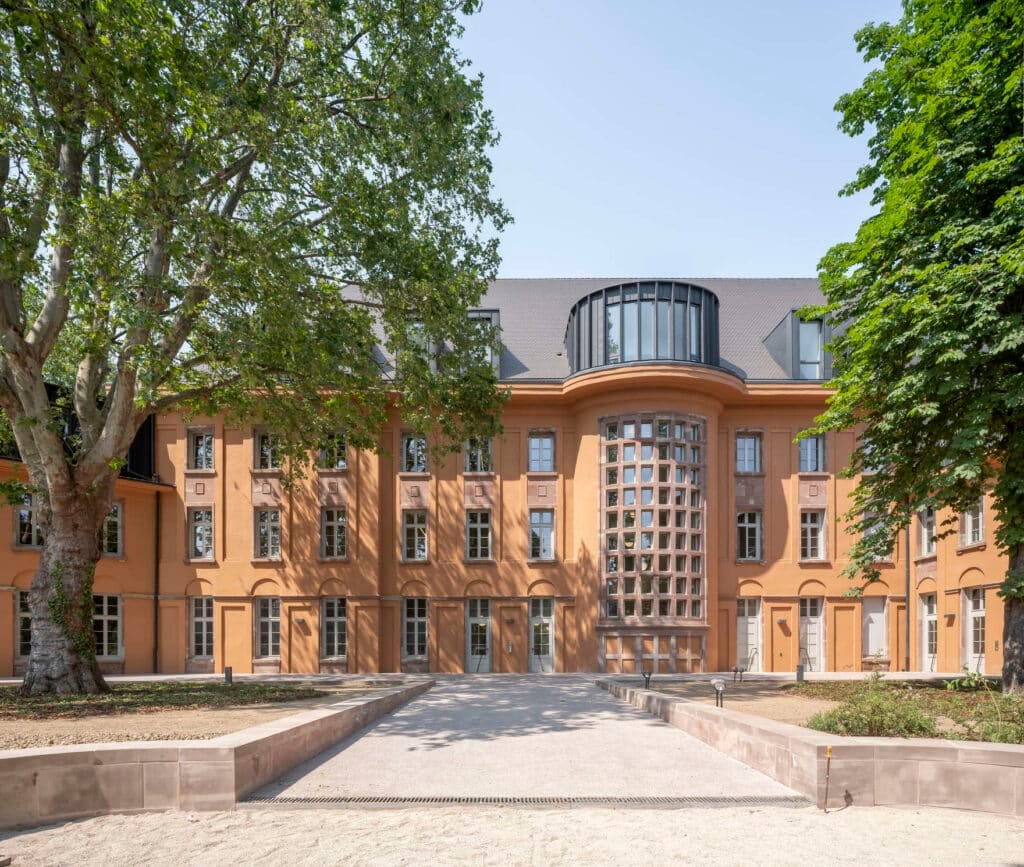
At the centre of Nextmed's physical footprint is the eXplora Building, inaugurated in 2023. This state-of-the-art facility offers 5,000 square metres of purpose-built space for innovative healthcare companies. The building represents the first phase of an ambitious development plan that will eventually provide between 27,000 and 30,000 square metres of dedicated space for medical innovation.
The campus has been thoughtfully designed to foster collaboration and create synergies among its diverse tenants. Its integration within the broader Strasbourg Civil Hospital complex provides immediate proximity to clinical settings, allowing for rapid testing and implementation of new healthcare solutions.
The physical layout of Nextmed reflects its mission of connecting different stakeholders in the healthcare innovation process. Shared spaces, laboratories, and meeting areas encourage spontaneous interactions between clinicians, researchers, and business professionals, while dedicated facilities cater to the specific needs of different types of healthcare innovation.
Strategic location and expansion plans
Nextmed's location in Strasbourg provides strategic advantages beyond its impressive physical scale. Positioned at the crossroads of Europe, with Germany and Switzerland nearby, the campus benefits from Strasbourg's reputation as a centre of European cooperation and international exchange.
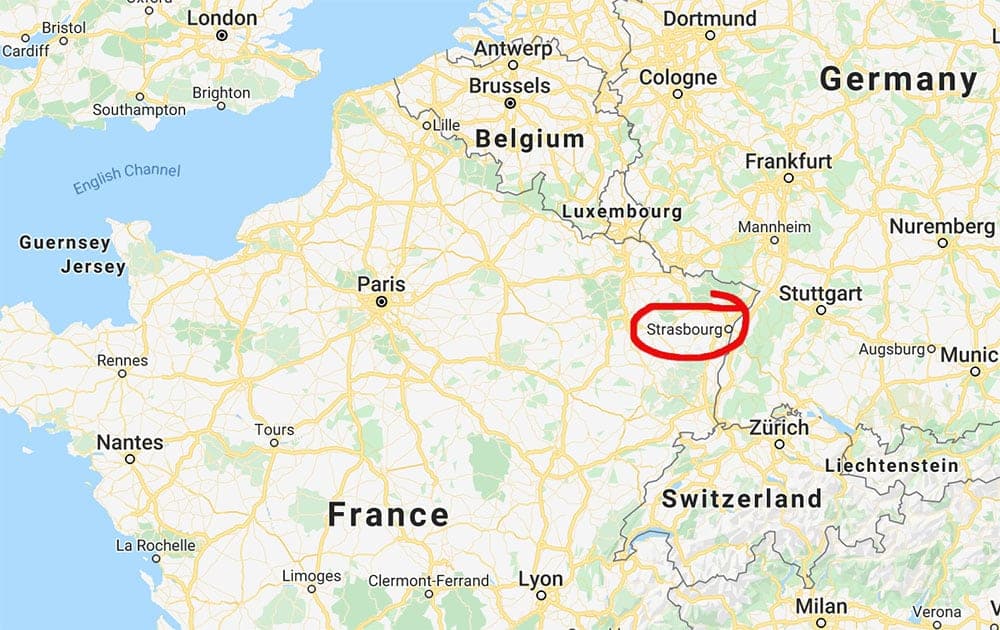
The campus development plan includes multiple phases of construction. Future development will expand the available real estate significantly, creating one of Europe's largest dedicated healthcare innovation districts.
A comprehensive ecosystem for healthcare innovation
Beyond its physical infrastructure, Nextmed offers a comprehensive support system for healthcare innovators. The campus provides tailored assistance for startups and established companies alike, covering everything from incubation to acceleration, business development, fundraising, regulatory compliance, and research and development support.
This ecosystem approach has attracted both multinational corporations—including Medtronic, GE, Storz, and Siemens—and innovative startups such as Dianosic, HypnoVR, RDS, and TokTokDoc. The mix of established industry leaders and agile newcomers creates a dynamic environment for collaboration and innovation.
Nextmed's close links with the University of Strasbourg, the University Hospital (CHU), and renowned research institutes like IRCAD and IHU provide tenants with direct access to clinical expertise and academic research. This integration of academic, clinical, and commercial spaces within a single campus represents a significant innovation in life sciences real estate development.
Economic impact and future prospects
The economic impact of Nextmed extends well beyond its physical scale. Aiming to create 1,500 healthcare jobs, the campus reinforces Strasbourg’s position as a European MedTech hub. Its designation by the FrenchTech initiative underscores its strategic role in France’s innovation ecosystem.
As a flagship project for the Eurometropolis of Strasbourg, Nextmed illustrates how targeted real estate development can drive growth in the life sciences sector. Backed by public-private partnerships and regional agencies, it offers a valuable model for investors and developers.
The campus demonstrates the importance of collaborative spaces, clinical integration, and robust support systems. As Europe’s healthcare sector evolves, projects like Nextmed underscore the rising importance of purpose-built real estate in enabling innovation.
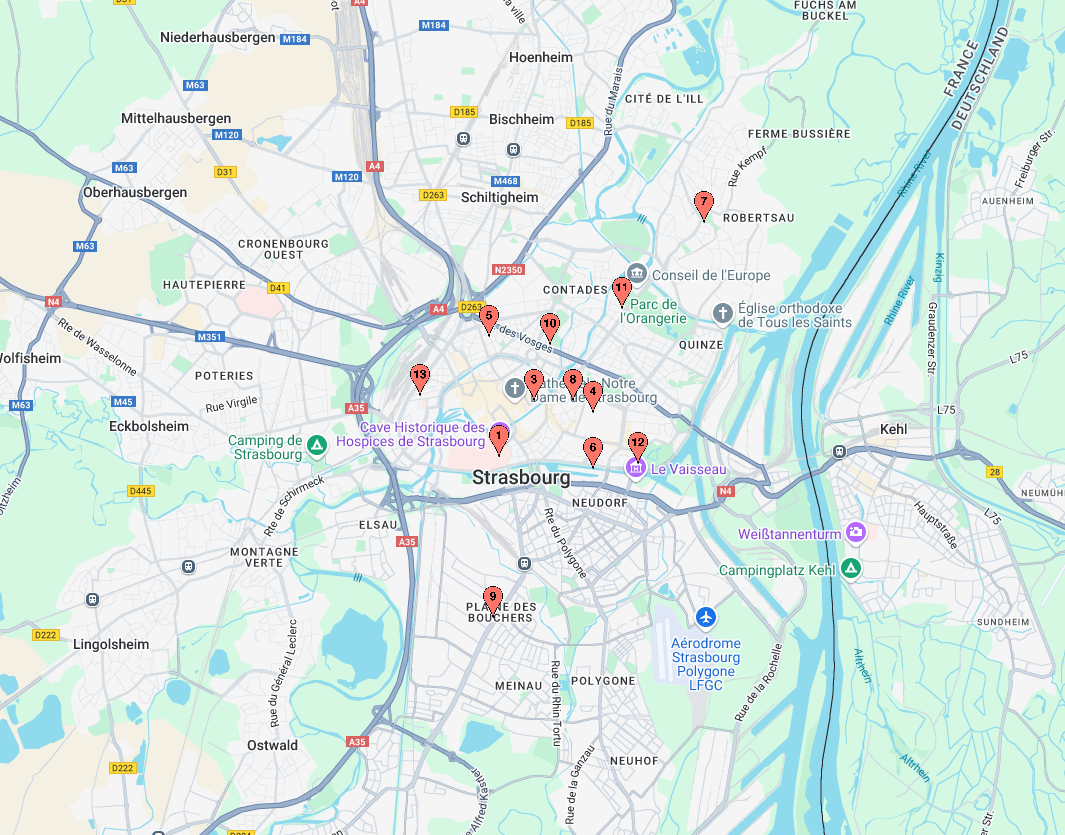
Industry voice: Emma Goodford

Knight Frank's former head of Life Sciences, Emma Goodford, retired from the partnership in March 2025, ending a 37-year career at the company. She is now a consultant advisor at Railpen, focusing on leasing and occupier relationships. Railpen has appointed Emma to lead life sciences leasing across its £782 million (€928 million) Oxford-Cambridge innovation portfolio, which features 1.9 million sq ft of labs and workspaces.
Emma grew up with a father who pioneered drug design in the 1980s. In 1989, he demonstrated some research on a computer so large it arrived by articulated truck. Now, this same technology fits in our pockets—remarkable progress in such a short time.
AI will be transformational...and is driving a juggernaut through traditional thinking and practice.
AI and property technology are indeed transforming life sciences real estate, see our article from 2024.
🔜 Next week's article will explore the real estate portfolios of medtech companies.
⭐ Paid-members area ⭐
The content below is part of your paid subscription.
Medicine's ancient symbol continues its story in Athens life sciences park

If you've ever noticed the snake-entwined staff symbol on ambulances, hospitals, or pharmaceutical packaging, you're seeing one of history's most enduring brand logos—the Rod of Asclepius—that has represented medicine for millennia.
The original healing centres
"I swear by Apollo the physician, and Asclepius, and Hygieia and Panacea..." So begins medicine's ancient oath, invoking Asclepius, son of Apollo and a mortal woman, who became ancient Greece's premier healing deity around the 6th century BCE. His healing sanctuaries—Asclepieia—were probably the world's first specialised healthcare facilities, combining religious ritual with practical medical treatment.
The most famous Asclepieion at Epidaurus wasn't just a temple—it was an integrated healthcare campus with specialised buildings for diagnosis, treatment, and recovery. Patients would sleep in dedicated dormitories (enkoimeterion) where their dreams were interpreted as divine healing guidance. The complex included theatres, gymnasiums, and baths—recognising that healing involved mind, body, and spirit long before "wellness" became a modern buzzword.
From sacred snakes to scientific research
The serpent on Asclepius' staff wasn't merely symbolic—live snakes actually slithered freely through these ancient healing centres. Their shed skin represented renewal and transformation, while their ground-hugging perspective supposedly gave them access to Earth's healing secrets.

Today, Athens and the surrounding Attica region are witnessing a quiet renaissance in life sciences, with several key developments including:
- Athens LifeTech Park: this new research and innovation hub is focused on life sciences, especially early-stage drug discovery and development
- Attica Technology Park "Lefkippos": a business and technology campus for startups, SMEs, and innovative companies
What would Asclepius make of today's medical technology? He might recognise the continuity in purpose while marvelling at the methods. From healing sleep in ancient temples to precision medications developed in modern laboratories, the fundamental mission remains unchanged: harnessing knowledge to heal the sick.
The next time you see that snake-wrapped staff symbol, remember it represents not just modern medicine, but a direct lineage to Greece's ancient healing traditions—a legacy now finding new expression in Athens' emerging life sciences buildings.
Editor's note: The Rod of Asclepius (single serpent, no wings) is medicine's authentic ancient symbol, often confused with Hermes' caduceus (two serpents with wings), which was incorrectly adopted by some medical organisations in the early 20th century.
Green and leafy
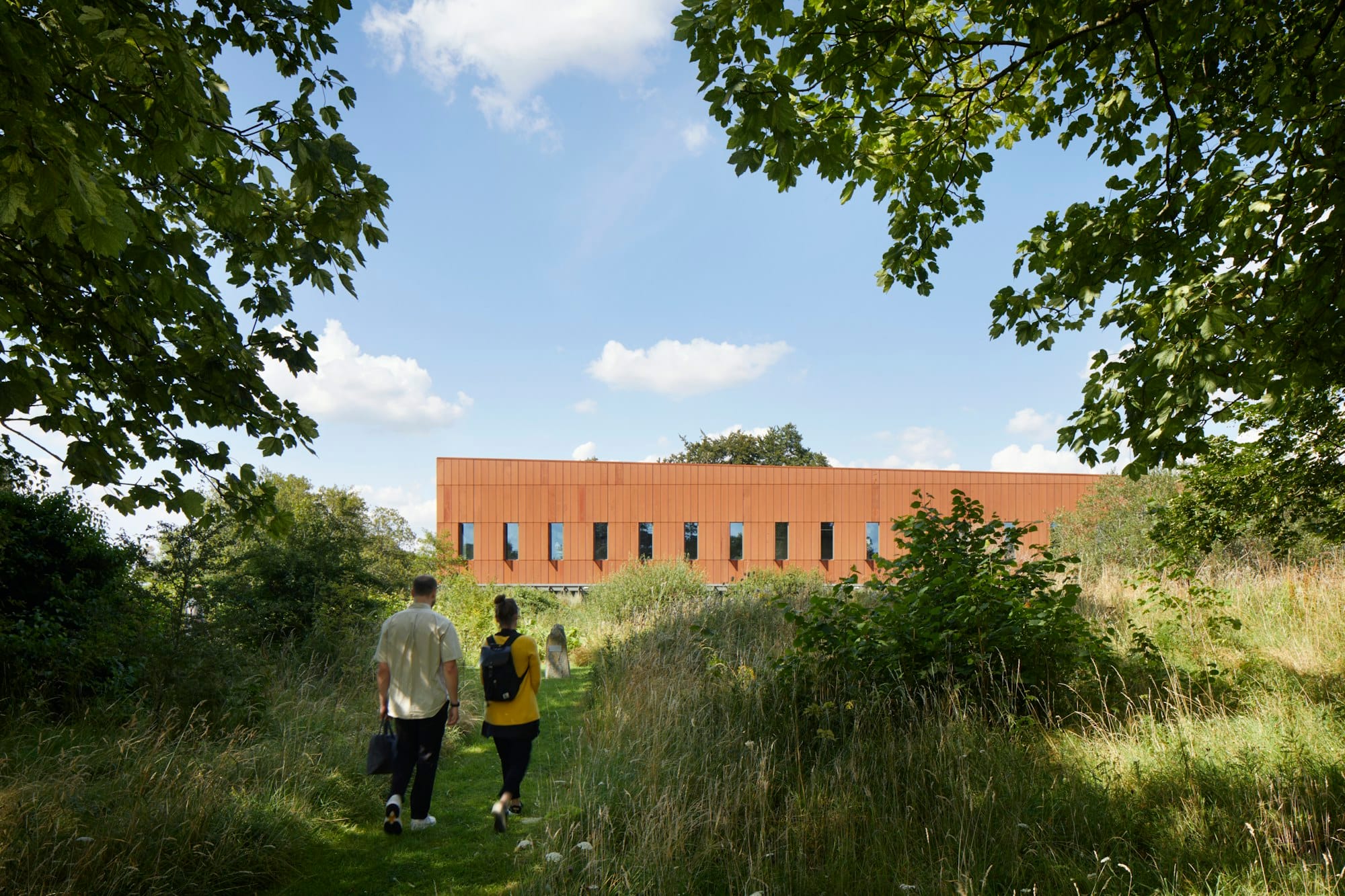
In the world of science and technology parks, an interesting pattern emerges in how these innovation hubs present themselves: an emphasis on their natural surroundings alongside their technological credentials, particularly for those located in suburban and exurban areas.
From the "lakes, lawns and leafy avenues" of Cambridge Research Park to the "leafy environment of young and mature trees" at Harwell Oxford, UK science parks highlight their green and pleasant spaces. The Zeus Building at Harwell is even "thoughtfully designed to retain an existing cluster of trees".
This arboreal appreciation crosses European borders. France's Sophia Antipolis notes its "environnement arboré" (tree-filled environment), while León Technology Park in Spain points to its "importantes dotaciones de zonas verdes" (significant green areas). Germany's Technopark Hannover describes itself as "mitten im Grünen" (surrounded by greenery), and Leiden Bio Science Park in the Netherlands is characterised as "volledig in het groen" (completely embedded in greenery).
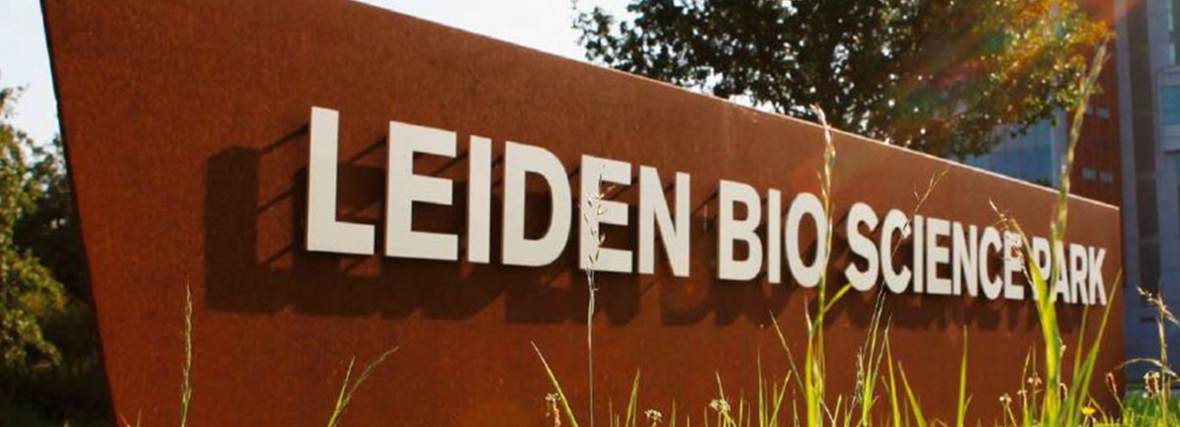
This leafy thread emphasises that natural settings contribute to workplace satisfaction and creative thinking. Additionally, these tree-lined campuses may offer another advantage, though not in every instance: lower rental rates compared to their downtown counterparts.
That's it for now. Our next edition will arrive on 29 May.
